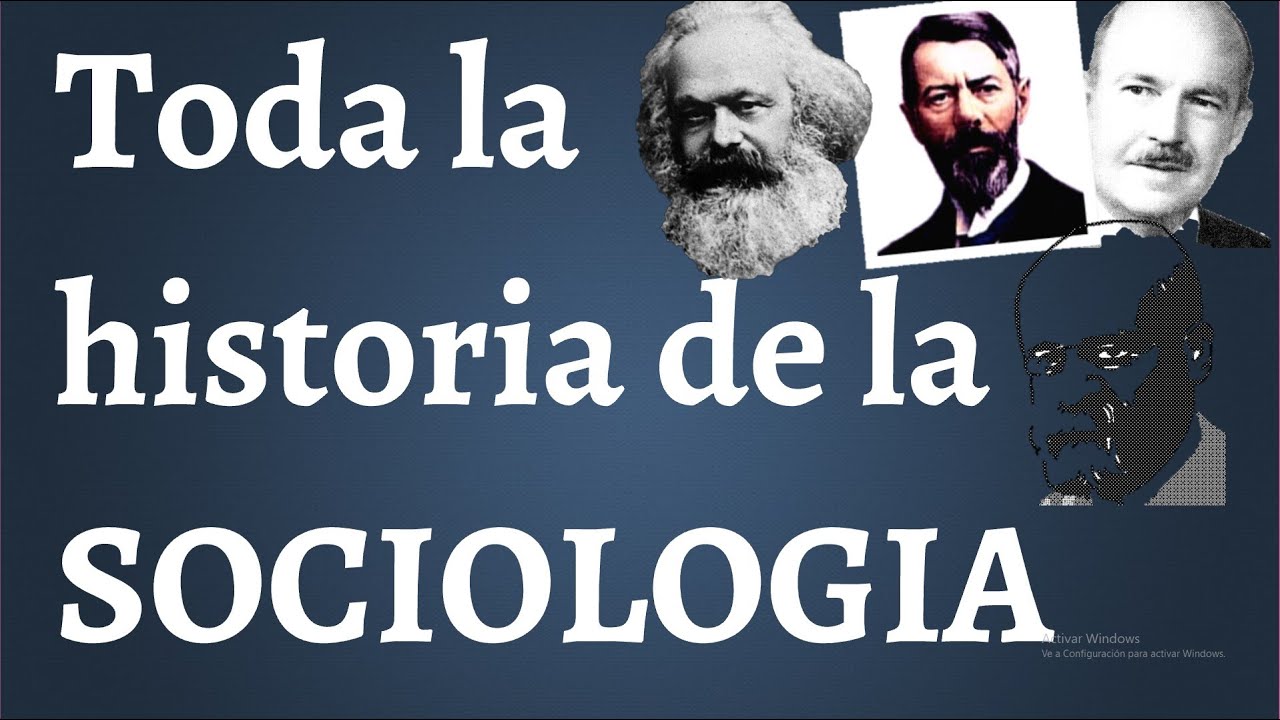Durkheim Resumen Completo
Summary
TLDRThis video delves into the foundational theories of Émile Durkheim, a pioneer in sociology. It highlights his work on social facts, their coercive and external nature, and their role in shaping individual consciousness. Durkheim's distinction between mechanical and organic solidarity in primitive and modern societies is explored, along with the types of law and the role of the state and education in fostering social cohesion. The video also touches on Durkheim's analysis of suicide, attributing it to social factors like integration and regulation within society.
Takeaways
- 📚 Durkheim is recognized as one of the founding fathers of sociology alongside Saint Simon, with his works such as 'The Rules of Sociological Method', 'The Division of Labor in Society', and 'Suicide' being fundamental to the study of social sciences.
- 🔍 Durkheim's 'The Rules of Sociological Method' establishes the object of study and methodology for sociology, focusing on social facts rather than individual psychological facts, which are external and coercive to the individual.
- 🌐 Social facts encompass all forms of acting, feeling, and thinking that are imposed on individuals from the outside, such as language, law, the judicial system, the state, and the monetary system.
- 🔑 The two fundamental characteristics of social facts are their externality and coerciveness, meaning they are not produced by the individual but are imposed through socialization processes in family, school, and other social groups.
- 🤔 Even seemingly subjective and individual preferences, like love or taste for coffee, are actually social constructions that vary across different cultures and historical periods.
- 🔄 Durkheim differentiates between two types of societies: primitive societies characterized by mechanical solidarity and modern societies characterized by organic solidarity.
- 👪 Mechanical solidarity is found in primitive societies with direct kinship ties, little division of labor, communal property, and strong sanctions for norm violations.
- 🔄 Organic solidarity emerges in modern societies through differentiation and specialization, where individuals with different capacities and private property perform various social functions for the collective good.
- 🏛️ In organic societies, there is a paradox of greater individual freedom but also a higher risk of anomie or social disintegration if individualism turns into egoism.
- 📜 Durkheim discusses two types of law corresponding to the types of societies: repressive law in primitive societies that physically punishes lawbreakers, and restitutive law in modern societies that aims to restore the pre-existing order.
- 🏫 Education for Durkheim should primarily be moral, instilling social values, respect for law, knowledge of work, science, individual freedoms, and solidarity with others.
- 🔮 Durkheim's analysis of 'suicide' reveals it as not only a psychological act but also a social one, with different types of suicide (egoistic, fatalistic, altruistic, and anomic) reflecting different levels of social integration and regulation.
Q & A
Who is considered one of the founders of sociology along with Comte and Saint-Simon?
-Émile Durkheim is considered one of the founders of sociology along with Auguste Comte and Henri de Saint-Simon.
What are some of the fundamental books for studying social sciences according to the script?
-Some fundamental books for studying social sciences include 'The Rules of Sociological Method', 'The Division of Labor in Society', and 'Suicide'.
What does Durkheim establish in 'The Rules of Sociological Method'?
-In 'The Rules of Sociological Method', Durkheim establishes the object of study and the methodology of sociology.
What are the characteristics of social facts according to Durkheim?
-The characteristics of social facts according to Durkheim are their externality and coerciveness.
What does the term 'externality' in the context of social facts mean?
-The term 'externality' in the context of social facts means that they are not produced by the individual but are imposed on them from outside, such as language, law, and the monetary system.
What is the difference between mechanical solidarity and organic solidarity in Durkheim's theory?
-Mechanical solidarity is characteristic of primitive societies with direct ties between clans and families, little division of labor, and communal property. Organic solidarity is characteristic of modern societies where individuals with different capacities and private property perform different activities through a process of differentiation and specialization.
How does Durkheim describe the role of education in society?
-Durkheim describes education as primarily moral, focusing on social values such as respect, observance of the law, knowledge of work, science, respect for individual freedoms, and solidarity.
What are the two types of societies according to Durkheim?
-According to Durkheim, the two types of societies are primitive societies and modern differentiated societies.
What are the characteristics of repressive law in primitive societies according to Durkheim?
-In primitive societies, repressive law is characterized by strong physical actions against lawbreakers, such as executions or banishments.
How does Durkheim explain the different types of suicide in his theory?
-Durkheim explains different types of suicide: egoistic suicide when a person is not well integrated into the social system, fatalistic suicide when the social system is too demanding, altruistic suicide when a person is so well integrated that they are willing to renounce their individuality for the common good, and anomic suicide when social norms are disintegrated, such as during an economic crisis.
What is the role of the state according to Durkheim?
-According to Durkheim, the state is a particular case of social consciousness with precise objectives and means to achieve a social goal. It must adapt alongside secondary groups like associations of guilds and professionals to integrate individual and common goals.
Outlines

This section is available to paid users only. Please upgrade to access this part.
Upgrade NowMindmap

This section is available to paid users only. Please upgrade to access this part.
Upgrade NowKeywords

This section is available to paid users only. Please upgrade to access this part.
Upgrade NowHighlights

This section is available to paid users only. Please upgrade to access this part.
Upgrade NowTranscripts

This section is available to paid users only. Please upgrade to access this part.
Upgrade Now5.0 / 5 (0 votes)





